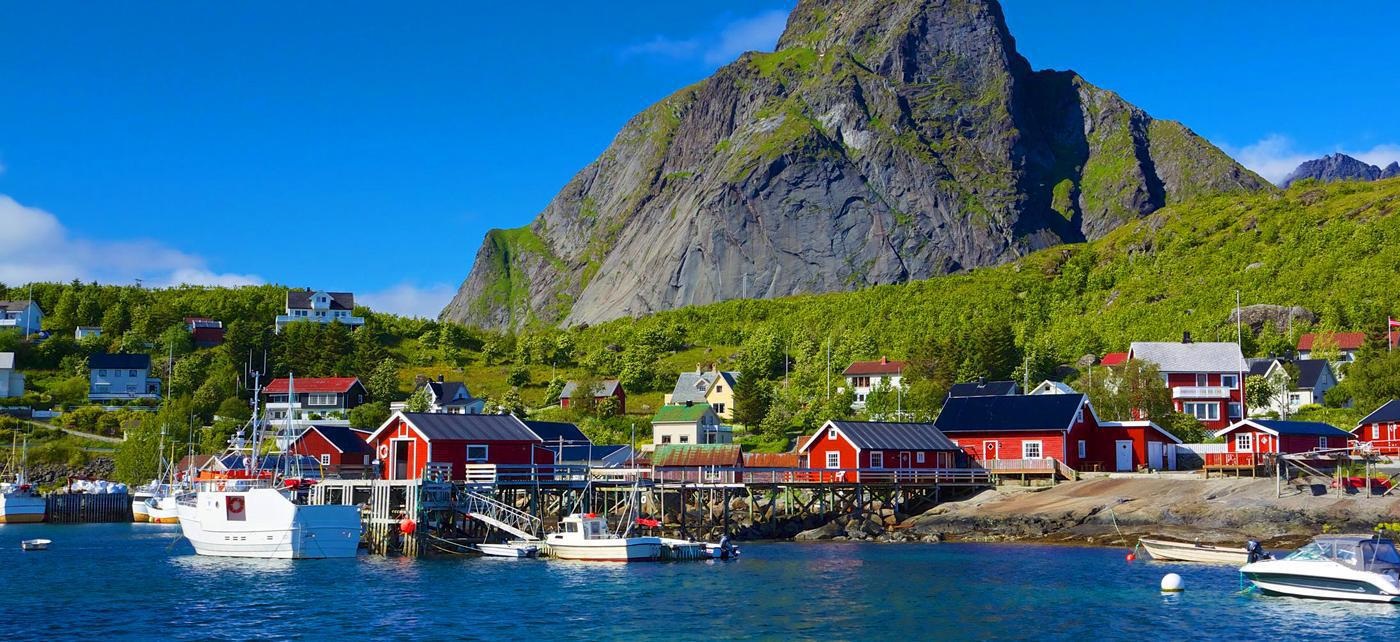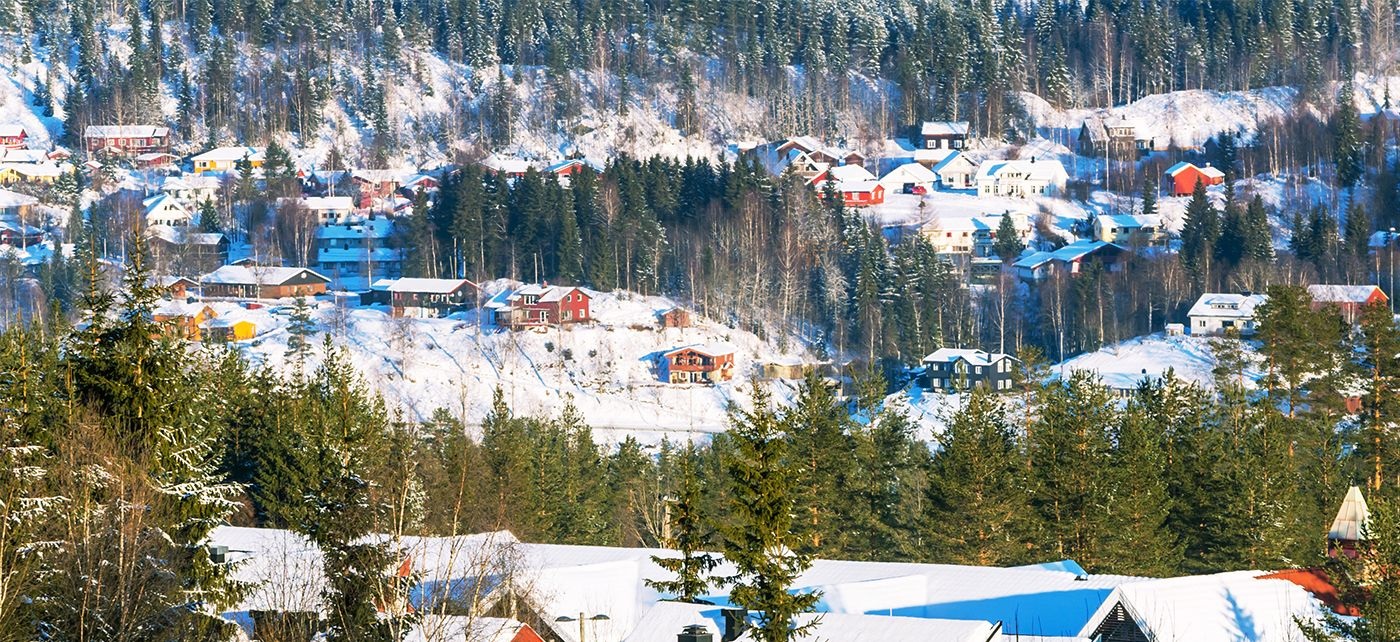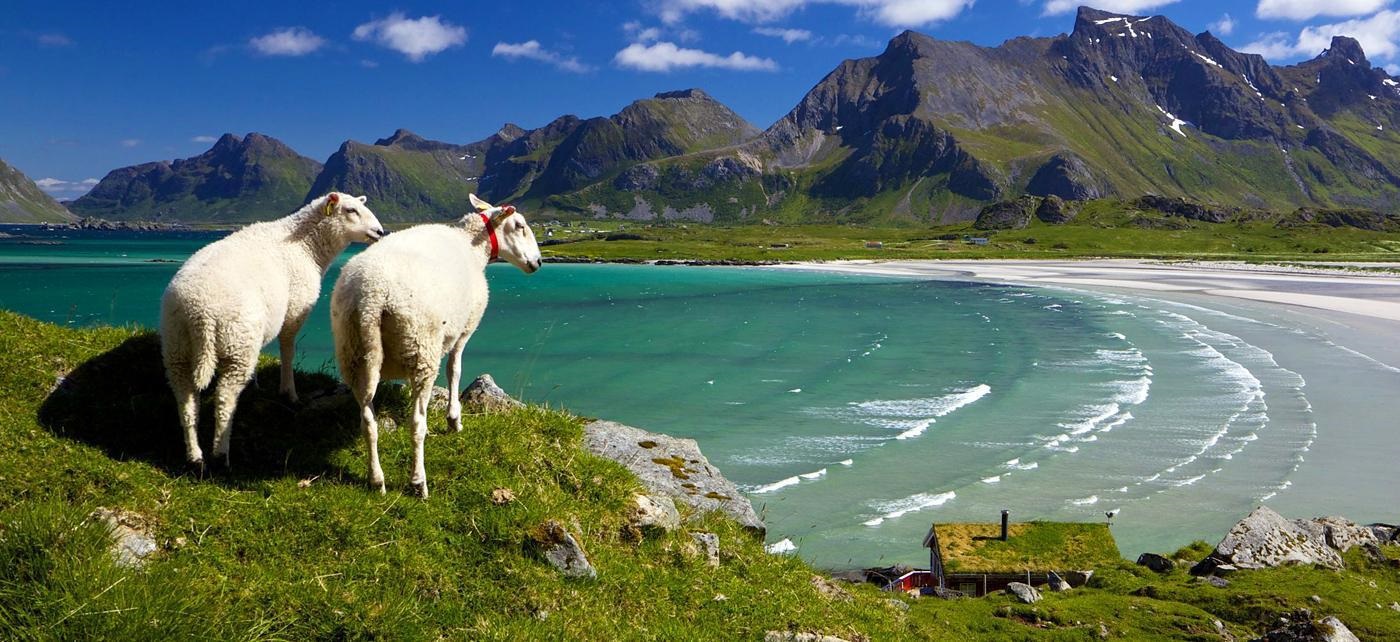Norway, officially the Kingdom of Norway, is a Nordic unitary constitutional monarchy occupying the western portion of the Scandinavian Peninsula, as well as Jan Mayen, the Arctic archipelago of Svalbard and Bouvet Island (is not subject to the Antarctic Treaty). Norway has a total area of 385,252 square kilometers (148,747 sq mi) and a population of about 4.9 million. It is the second least densely populated country in Europe. The majority of the country shares a border to the east with Sweden; its northernmost region is bordered by Finland to the south and Russia to the east; in its south Norway borders the Skagerrak Strait, across which Denmark is situated. The capital city of Norway is Oslo. Norway's extensive coastline, facing the North Atlantic Ocean and the Barents Sea, is home to its famous fjords.
Two centuries of Viking raids tapered off following the adoption of Christianity by King Olav Tryggvason in 994. A period of civil war ended in the 13th century when Norway expanded its control overseas to parts of the British Isles, Iceland, and Greenland. Norwegian territorial power peaked in 1265, but competition from the Hanseatic League and the spread of the Black Death weakened the country. In 1380, Norway was absorbed into a union with Denmark that lasted more than four centuries. In 1814, Norwegians resisted the cession of their country to Sweden and adopted a new constitution. Sweden then invaded Norway but agreed to let Norway keep its constitution in return for accepting the union under a Swedish king.
Rising nationalism throughout the 19th century led to a 1905 referendum granting Norway independence. Although Norway remained neutral in World War I, it suffered heavy losses to its shipping. Norway proclaimed its neutrality at the outset of World War II, but was nonetheless occupied for five years by the Third Reich. In 1949, neutrality was abandoned and Norway became a founding member of NATO. Discovery of oil and gas in adjacent waters in the late 1960s boosted Norway's economic fortunes. In referenda held in 1972 and 1994, Norway rejected joining the EU. Key domestic issues include immigration and integration of ethnic minorities, maintaining the country's extensive social safety net with an ageing population, and preserving economic competitiveness.
In recent years, immigration has accounted for most of Norway's population growth. According to Statistics Norway (SSB), a record 61,200 immigrants arrived in the country in 2007, an increase of 35% from 2006. At the beginning of 2010, there were 552,313 people in Norway of some immigrant background (including those born of immigrant parents), comprising 11.4% of the total population. 210,725 were from Western countries (Europe, the United States, Canada, Australia, and New Zealand) and 341,588 were from other countries. The largest immigrant groups by country of origin, in order of size, are Poles, Swedes, Pakistanis, Iraqis, Somalis, Germans, Vietnamese, and Danes.
Norwegian cuisine in its traditional form is based largely on the raw materials readily available in Norway and its mountains, wilderness and coast. It differs in many respects from its continental counterparts with a stronger focus on game and fish. Modern Norwegian cuisine, although still strongly influenced by its traditional background, now bears the marks of globalization and Americanization: pastas, pizzas and the like are as common as meatballs and cod as staple foods, and urban restaurants sport the same selection you would expect to find in any western European city.


